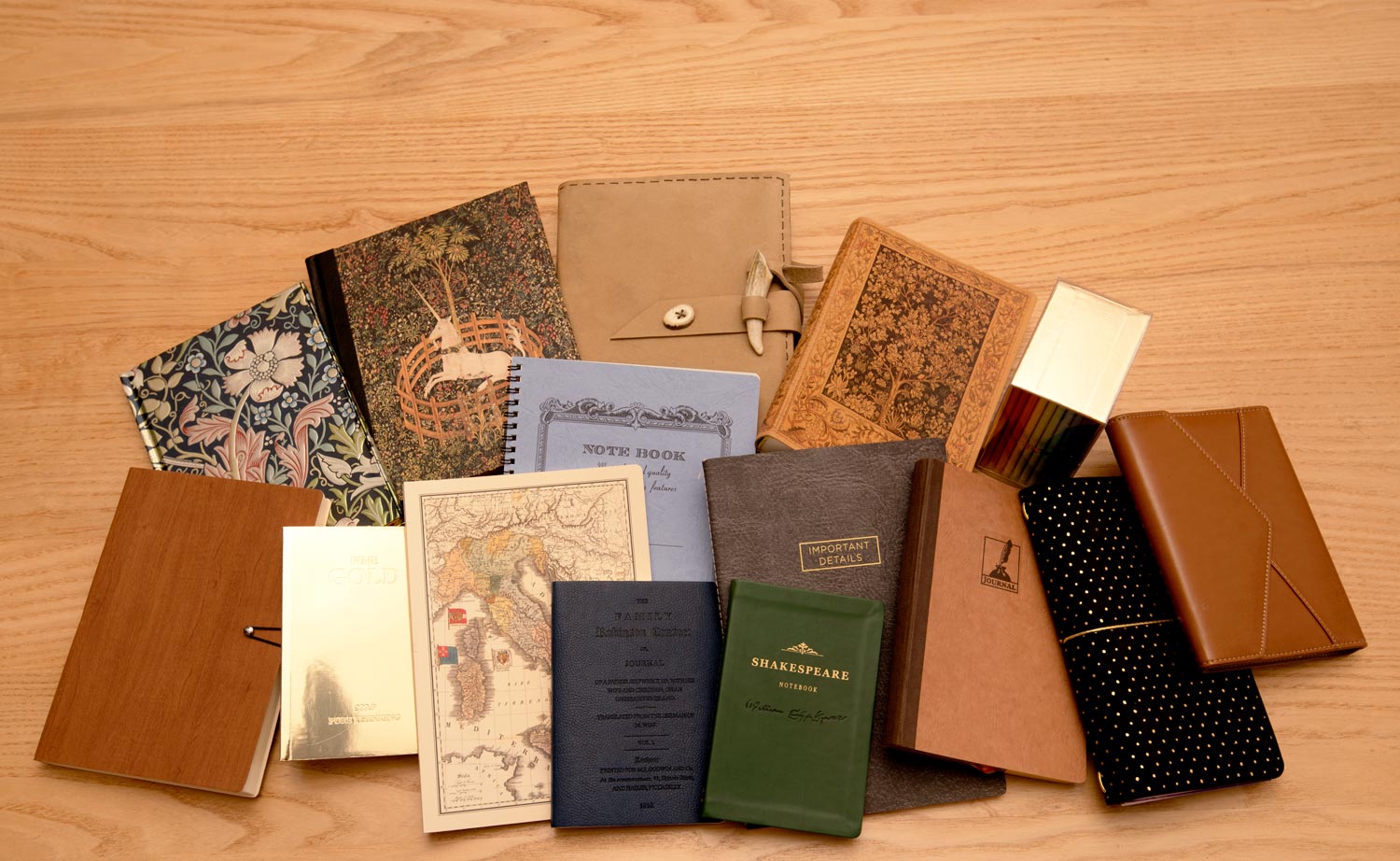Journal Strokes for Different Folks
Photos by Forrest Anderson and historical photos in the public domain.
Journaling has had a comeback in recent years as an analog way to slow down, pay attention to what is going on in your life and channel difficulties into healthy, creative outcomes.
Journaling is an eye- and heart-opening strategy that helps people sort out their lives and feelings and work out their problems. At the same time, it comes with its own set of hang ups and guilt trips that make any discussion of journaling fraught with “I don’t journal because…”
This blog is a response to a request from readers to explore the topic of journaling. Let’s start with good reasons for journaling before going on to the drawbacks:
Journals as Valuable Historical Accounts
Journals are historically valuable records of people's life and times. To read a journal from virtually any historical period is an intensely refreshing experience that collapses the years between us and the journal's writer. Among the most important books are journals that historians draw upon constantly to figure out historical events. Probably the most famous journal ever is The Diary of a Young Girl written by Anne Frank as she and her Jewish family were in hiding from the Nazis in Amsterdam during World War II before her capture and death in a concentration camp at age 15.
“Will I ever be able to write something great, will I ever become a journalist or a writer? I hope so, oh, I hope so very much, because writing allows me to record everything, all my thoughts, ideals and fantasies,” Anne wrote in the diary.
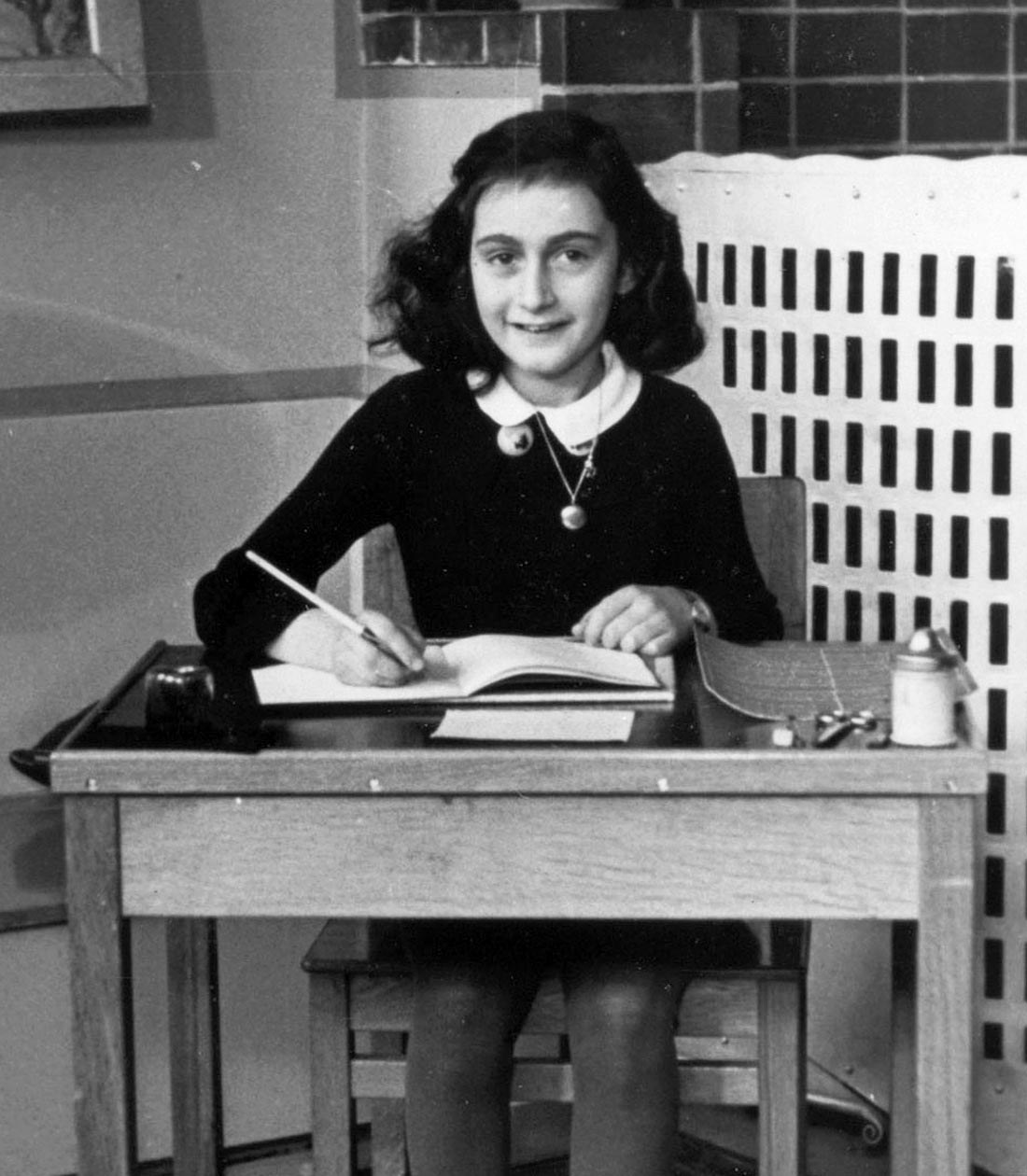
Anne Frank writing in a notebook in 1940.
Another famous journal is Journals: Captain Scott’s Last Expedition, the harrowing personal account of an expedition to the South Pole in 1910-12 , which was found with explorer Robert Scott’s body after he died during the expedition.
“Had we lived, I should have had a tale to tell of the hardihood, endurance, and courage of my companions which would have stirred the heart of every Englishman,” he wrote in the journal.
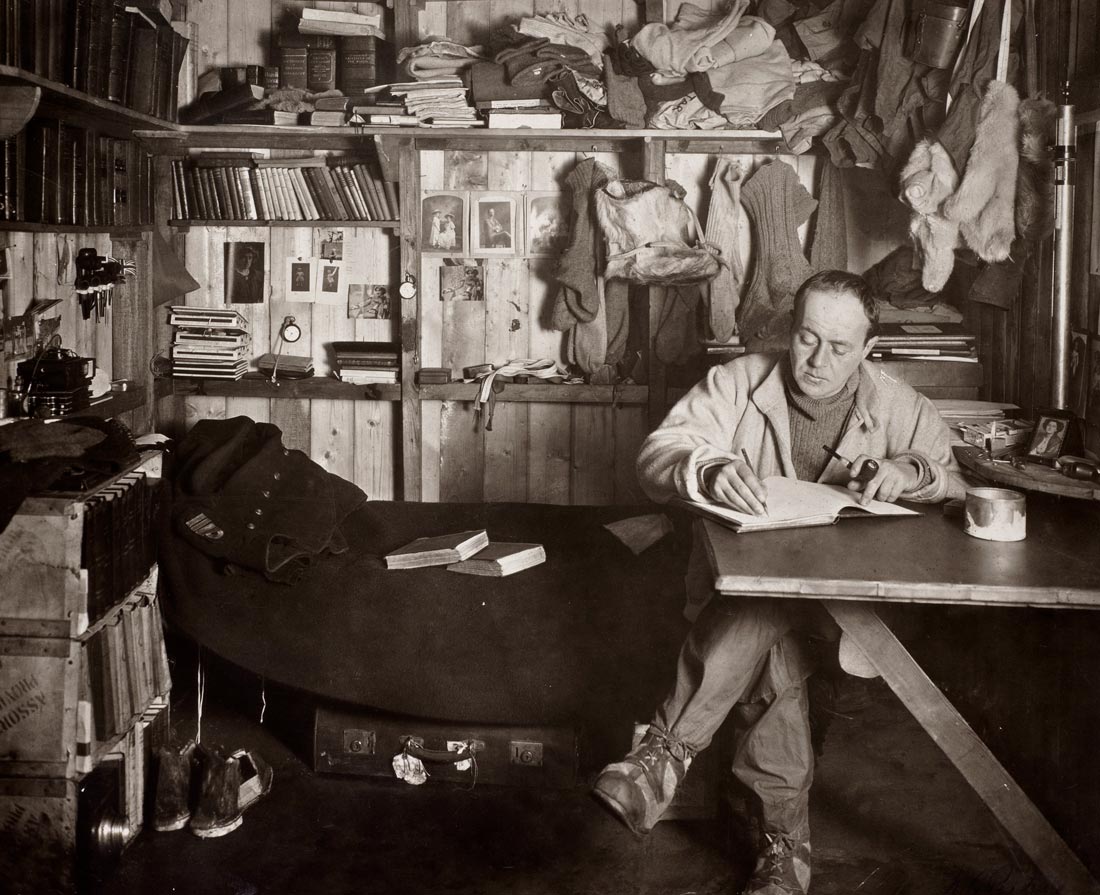
Robert Scott writing in his journal.
Nelson Mandela’s Conversations with Myself; Daniel Defoe’s A Journal of the Plague Year, about the devastation caused by the 1665 Great Plague in London; Pliny the Younger’s account of everyday life in the Roman Empire and the eruption of the volcano Vesuvius that buried the city of Pompeii; Lewis and Clark’s detailed journals describing their exploration of western North America and the diaries of American presidents are prominent examples of historically important journals. Ronald Reagan, for example, wrote in his journal after he was shot by an attempted assassin: “Getting shot hurts.”
Much of what we know of many major events such as American Civil War battles, campaigns and sieges of cities comes from personal diaries of ordinary people. Historians such as Laurel Thatcher Ulrich, author of the game-changing book A Midwife’s Tale: The Life of Martha Ballard, Based on her Diary, 1785-1812, have won Pulitzer Prizes for their work with diaries.
Diaries are valuable windows for looking into the past. They are open and candid in a way that official documents aren’t. They are among the most democratic of historical sources because a wide variety of people kept them. This is particularly true of 19th century journals.
However, it was probably during this era that journals became burdened by the guilt trips they still carry today. Form was important in 19th century journals. Many people who wrote them expressed the hope that their attempts at journal writing would live up to the expected form of keeping a diary. Whereas we today share our life events on social media, people in the 19th century did so in letters and journals. They were the selfies of the time. People wrote about their adventures and shared them with loved ones when they returned home or mailed their accounts in the form of letters, sometimes along with a photograph they had had taken of themselves. Then as today, it was a way of carving out a space for themselves in the broader context in which they lived.
Journals are a potent tool for mental and physical health
In today’s world, journaling is widely used as a mental and physical health strategy and means of stress relief. Why? Journaling:
- Helps improve focus and attention.
- Helps people find healthy ways to express themselves.
- Helps manage anxiety.
- Reduces stress.
- Helps cope with depression, improve mood and produce a sense of well-being.
- Helps people think in an orderly manner, prioritizing and organizing problems and concerns.
- Helps people track and deal with symptoms both mental and physical to learn how to control them and work out solutions. This increases self-confidence.
- Helps people identify and overcome negative patterns of thought and behavior.
- Helps improve memory, especially if people write by hand.
- Activates areas of the brain that increase comprehension and involve more senses and motor neurons than typing on a keyboard does.
- Helps improve sleep, especially if you write about being grateful right before bed.
- Helps people heal from infectious diseases more quickly.
Journaling helps us find our voice
A journal is a private, safe venue in which we can express ourselves without criticism or interruption. It enables us to manage our emotions by releasing them in a controlled, harmless way and validating our right to express them.
At its most fundamental level, journaling is a form of self-expression. When we can express something that’s important to us without being critiqued, we can find and explore answers to questions we ask ourselves as human beings. Our journal can become one of our most helpful and best friends and mentors. It can help us find a healthy way to express ourselves, put our concerns in perspective and get them down to manageable size.
I have found that having this kind of space to sort out how I feel before talking to someone else is very helpful. Unlike many well-meaning people, my journal never tries to diagnose a problem before listening to me and finding out how I feel about it. It never imposes solutions on me that may solve other people’s problems but invalidate my concerns. It patiently allows me to work things out. It helps me to separate things I’m responsible for from things I’m not and things I can control from things I can’t. It allows me to prioritize my concerns and enables me to recognize negative patterns that I need to change or extricate myself from, make plans and head in new directions. It does the nonjudgmental listening that all of us often want but other people sometimes are unable to do for us.
Journaling is particularly helpful for people with a history of trauma and PTSD, especially women struggling with the aftermath of abuse, high-risk adolescents and children who are grieving, because it helps them process difficult events and compose a coherent narrative about them. It is an environment away from the fray where we can take control over our lives and shift from a negative mindset to a more positive one. This is healthy, because it gives us a space to decide what we’re about before our actions are judged.
Journaling helps us to craft and maintain our sense of self and identity. It helps us go on to create the narrative of our life, with all of the choices we have made and are making and the memories that make us who we are today.
Journaling helps children gain a healthy sense of self-control in a world where many decisions are made for them. It helps them deal with “big feelings” in a healthy, safe way; improves their writing skills, including their grammar, vocabulary and spelling; improves their reading skills and enjoyment in reading; enhances their written and verbal communication skills; gives them an outlet for issues that are difficult for them to express or share; helps them identify their emotions and allows them to safely feel and work through emotions like anger and injustice; helps them examine the pros and cons of decisions: allows them to reflect on their thoughts about events that have happened to them; helps them gain skill in recognizing their motives and those of others; helps them see positives as well as negatives and helps them plan out difficult conversations in advance.
Journaling provides a reality check. You can’t fix all of your problems at once, and real positive change happens only over time. Journaling the process helps you guide and adjust the process as you go along. It forces you to face where you are now and then craft your future.
Being able to explore the emotions in your circumstances can help you to access and appeal to human emotion in your work. It’s never easy to translate what we think and feel into words but journaling allows us to practice this every time we sit down to write. As we get better at this, we develop a consistent voice that spills over into other areas of our lives.
Entries you write in your journal tell your story, perhaps disjointed but in the process of becoming. Journaling is about you and charting your journey through life. At some time or other, all of us have longed to be a character in a movie in which everything seems to be clearer and simpler than real life and marches to a satisfying resolution. Journaling enables us to identify major unifying themes in our life that can move us in this direction. You are likely to find that your journal entries are repetitive because you are massaging the same concerns, goals and challenges over a period of time. If you keep at it, they will emerge into themes, concrete directions and goals that identify your personal mission.
Journaling is a way of getting off the broad crossroads of being an “all-around well-balanced person” who meets everyone’s expectations and becoming the specific unique person you were meant to be, because you can’t write everything. You have to choose, and choosing is how we become the people we should be. A journal is the ideal place to write out your vision for our future – things you want to do, your five-year plan, the kind of person you want to be.
A journal has been called an adult’s sandbox, where you get to play around with different scenarios until you decide which one you want to become. You can make mistakes no one sees or grades you on and that you don’t have to ship out or put on social media. You can explore ideas for future projects, doodle, make diagrams, create icons and cartoons that express what you really think about the boring meeting you’re stuck in. Whipping out a journal and appearing to take notes in a meeting looks like you’re involved, but you don’t have to be at the mercy of a time-wasting gathering. You also can jot down your ideas about what is taking place in the meeting so you know where you want to go with its content.
Journaling unlocks creativity
Journaling unlocks a door to accessing and developing your talents. Journaling has led many people on personal and professional paths that that they did not anticipate and that have led to great personal success. People use journals to make lists, write about their career goals and dreams, create art, write about their adventures and organize their thoughts. Journaling calms them and keeps them productive in times of stress. It enables them to figure out what they need to do to change things. Journaling helps people hone in on their goals and the obstacles to them, sorting them out from the world’s chaos.
Some creative journals have a specific limited creative purpose. In a challenging, chaotic time in my life, I began to keep a journal about my ideal house, collecting ideas and thoughts that I organized on pages for different rooms. This journal initially started as a refuge, but it gradually became a reality. I’m now living in and enjoying that house, which has become a refuge for me and other people.
Journaling can be a source of inspiration
Journals can be study companions in which we collect quotes, inspiration or our own thoughts from other sources that are important to us.
Journals in which we focus on writing about the good things in our life are known as gratitude journals.
Journals, especially planner-type ones, can help us keep track of our time
They provide the crucial role of ordering and organizing us as we move through life.
So how do we deal with those 19th century guilt feelings surrounding journaliing?
“I have terrible handwriting.” So do I. I’m left handed, so it’s easy for me to smear anything I write. I always have had a physical problem with weak connective tissues in my hands that makes it harder for me to grip a pen or pencil. There are a variety of strategies to get around the handwriting hangup:
- Type it.
- Slow down and print, draw, write in bullet prints and paste in pictures and stickers. Do what you’re comfortable using to express yourself.
- Blow it off. Who cares? This is a relic of a time when good handwriting was a mark of culture and refinement and probably of your second grade teacher’s judgement of your writing. Guess what? The idea that people used to write beautifully in those 19th century documents is a myth. Some did and some had abominable, unreadable handwriting. Among the most famous writers with terrible handwriting was Charles Dickens. Nobody outside of a minority of handwriting aficionados cares. A journal is your private world. It doesn’t have to be legible or beautiful. A journal isn’t a handwriting competition.
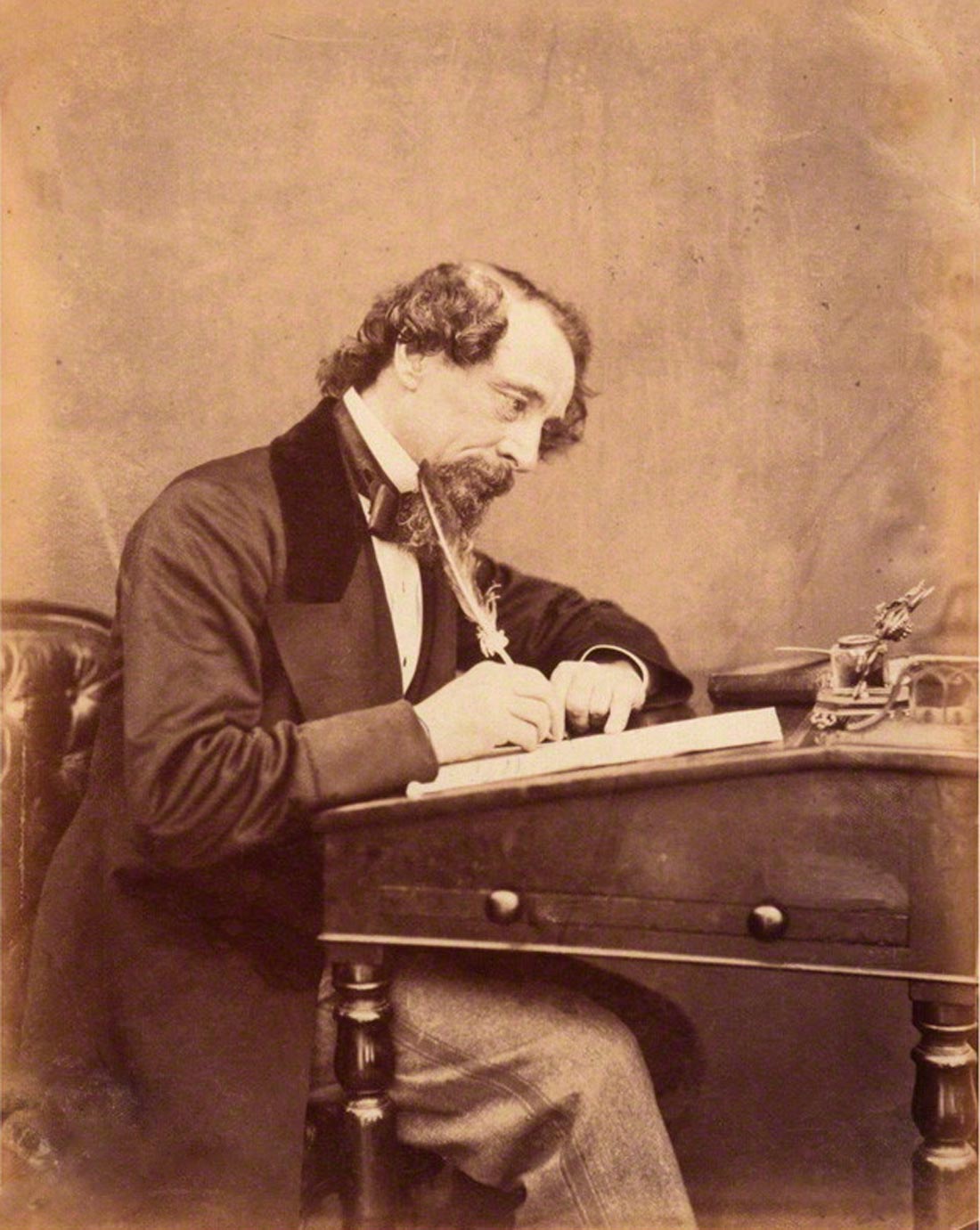
Charles Dickens writing in 1858. He had terrible handwriting, but sublime writing.
“I’m not a great writer. I’m intimidated by journaling.” Fortunately, journal writing has great value whether you know how to write or not. The only poor journal is the one in which you aren’t honest.
“I’m not good at writing consistently.” Because we get up and take a shower and eat breakfast every morning is no reason to think we have to keep a journal based on a daily calendar. Journals can be kept on a wide variety of other bases – to chronicle worthwhile experiences, to sort out our problems, as a Sunday afternoon leisure activity. Some people are obsessive about journal keeping the other way – they carry a journal or sketchbook with them and use it constantly to record things in.
“I start new journals and don’t finish them.” Is finishing them the point or is a journal a friend that goes on the journey with you, helping you to understand it as you go? At any given time, I bounce back and forth between several journals as ideas pop into my head – one in my car, one in my computer bag, one by my bedside and one at my desk. Some of them go unused for weeks or even months. I simply never give it a thought whether I’m going to finish them or not. The point is that I use them in a way that moves my life forward.
“I don’t have time.” Yeah, I get that. I struggle with that too. Journaling for me happens in the car, in a meeting if I get bored, in bed at the end of the day, while eating a snack, sometimes while watching a movie. Some days I write a lot, other days a few sentences, some days not at all. I persist at it on a regular basis because over the years, it has provided a safe, private venue to work out life’s challenges and rejuvenate myself.
“My life is boring.” I get that, too. A lot of life is boring and routine. That’s a different thing, though, from you being boring. You still have and come across significant thoughts, ideas and experiences that you can think through by writing them down. You have goals and plans and feelings you can write about that move you forward.
“My life is hard right now. I don’t want to keep a downer record of it.” There’s no law that says you have to hang on to your journals forever. While it’s great to keep historic records in many cases, you have no obligation to keep journal entries that you used to help you get through a hard time but that you don’t want to keep or don’t want anyone else to ever read. Archives generally only preserve an estimated 2 percent of all records of an era anyway, and even with that small amount, they are inundated. Just doing a brain dump about negative things in our life probably won’t improve it much so it’s no wonder that we shy away from doing so. There can be some downsides to journaling – dragging up or wallowing in memories that aren’t useful or leave you too focused on yourself and neglectful of others. If you find that your journaling approach isn’t helping, pull back and head in a healthier direction. A more structured journal such as a gratitude journal or a journal you use to plan a better future could be helpful for a while to get you on track in a challenging time.
“I’m not creative.” Creativity is solving problems, using information in helpful ways, working through situations. You don’t have to be an artist to be creative in this way. People in all walks of life are creative. Developing creativity is difficult and takes practice. It doesn’t just come to anyone. Journaling is a largely risk-free way to practice creativity. I can’t count the number of times that I have written something down, quite randomly, and later used the idea successfully in my work or relations with others. Ideas are fleeting and it’s not always possible to act on an idea when it comes to you. Collecting them in a journal captures them for later use and provides a space for you to refine, develop and explore them. It helps you build a library of good ideas that you can draw on as needed. The best way to become creative is to sit down daily and create. This consistently develops your creativity and opens you up to a constant supply of new ideas. It also improves your ability to choose wisely from among them. You can then flesh out your best ideas and set goals to bring them to fruition. Over time as you do this in your journal, you develop a voice and an ability to express yourself clearly and honestly that will spill over positively into other areas of your life.
“Keeping a journal is hard.” That can be true. Creativity is hard work and we all get tired. That’s why on those days, we need to take a break and just write randomly. This type of mind wandering is like taking a random walk in the middle of a difficult day or project and getting the exact inspiration you need while walking. It’s not always possible to take a break or a vacation when we need it, but we can spend a few minutes writing in our journal. These writings are among the most valuable because we can use them to shape and achieve our future. Vacations, new skills and projects, and some of my best experiences have begun with random jottings in my journal.
There’s no wrong way to journal, so you have permission to do it any way you want to.
Here are some common ways:
- Bullet Journals – This is one of the most popular journal systems. It is a way of bringing order to your life, from your grocery list to your events and monthly goals.
- Plain old legal pads – These work great for the kind of journals that help you work out problems but you don’t want to keep. I use them all the time.
- Printer paper – This works well is you want to be able to put pages from various sources into a ringed notebook.
- Planner with notes – Some people only want to keep a brief record of their lives from day to day. These can be valuable records. As a young reporter, I once covered a murder trial where a man was convicted on the basis of evidence in a woman’s planner. You can both plan your life and keep a record of it at the same time.
- Bound notebooks – These are for people who want to keep a permanent record of their lives and don’t want to tear out any pages.
- One line a day journals – This is the practice of summing up your day in one sentence. My grandfather kept this kind of a journal. A terse farmer, he would record the temperature every day and then one sentence describing the day. “My brother Louis died” was one notable entry.
- Visual journals and sketchbooks – These can include words and images, drawings, photos, magazine articles, collages and mixed-media. They are a good way to collect ideas, develop them, and improve your artistic and observational skills. They are a portable art studio. You can try out new techniques and materials in them. Other helpful ways to “journal” are vision boards, which can be done in an analog fashion or simply by creating Pinterest boards or Instagram accounts about specific topics that are of concern to you. These are a terrific free way to plan and explore major projects such as a house, wardrobe, landscape or garden, holiday, party or new talent that you want to explore. I use Pinterest constantly for this purpose and my husband uses Instagram in the same way. While social media often can be time-wasting, using it purposefully in this way enables you to think, plan and expose yourself to new ideas in a powerful way that can reshape your whole world.
Personally, I don’t buy expensive journals, although I understand the rationale for them and truly love the idea and aesthetic of them. I would love it if I had the handwriting coordination to create beautiful illustrated manuscript journals in a lovely notebook as permanent records. Someday if I keep writing, maybe I will.
If you want to write a permanent historical record of your life in your journal, you should invest in a good archival-quality one with acid-free paper and good pens with archival ink and only write on one side of each page so the ink won’t bleed into the other page. Many people get great satisfaction out of using a beautiful handmade journal with beautiful ink. As a historian who has fruitlessly tried to decipher old journals written on both sides of cheap acidic paper, I advocate these techniques for anything you definitely want to survive for generations.
However, I admit that that’s not how I write a journal. Mine is a messy dumping ground and sorting place for ideas. I use it to plan projects, craft stories, make to-do lists, draw ideas. I rip pages out and throw them away when I have false starts on a project or idea, file pages by topic if a project grows and becomes viable, take photos of pages to insert in productivity apps on my iPad or keep parts of them for a permanent record. As a result, I choose practical notebooks that accommodate this ad hoc approach without falling apart at the binding when I rip a page out. I type up permanent parts of my journal because my handwriting is so abominable that no one would otherwise be able to read them.
I don’t use stickers in my journal or paste things in it, finding that they clutter my thinking process, but I know people who enjoy using them regularly and I’m always on the lookout for sticker sets that they might like.
I do recommend using good pens that flow smoothly and feel good in your hand, as they can make the total difference between an enjoyable journaling experience and a miserable one.
The key is that you continue and develop what’s working for you and chuck the practices that aren’t. The process of doing this is a way to carve out an inexpensive place of crucial privacy in which to nurture and let yourself grow.
What if you can’t think of anything to write?
Here are some ideas for how to start:
- Just put pen to paper and start to write randomly anything that comes to your mind until you fill up at least a couple of pages non-stop. Don’t put down the pen until you’re done.
- Write about what you are grateful for.
- Work on form - changing your handwriting.
- Draw something – doodle.
- Make a bullet list of things that are on your mind.
- Choose a theme that is in the forefront of your mind to write about.
Journaling helps us to work with one thought at a time and bring it to some sort of conclusion. Some writers find it useful when working on a difficult or important project to keep a journal only on that topic, so that they have a private space to focus on it to the exclusion of other things.
It’s inexpensive. Sometimes we pay a fortune to fly to an island resort when we could get almost as much good out of an hour spent in the sunshine on our patio writing in our journal. What we really want may be a chance to get away and get some rest and privacy to think things over.
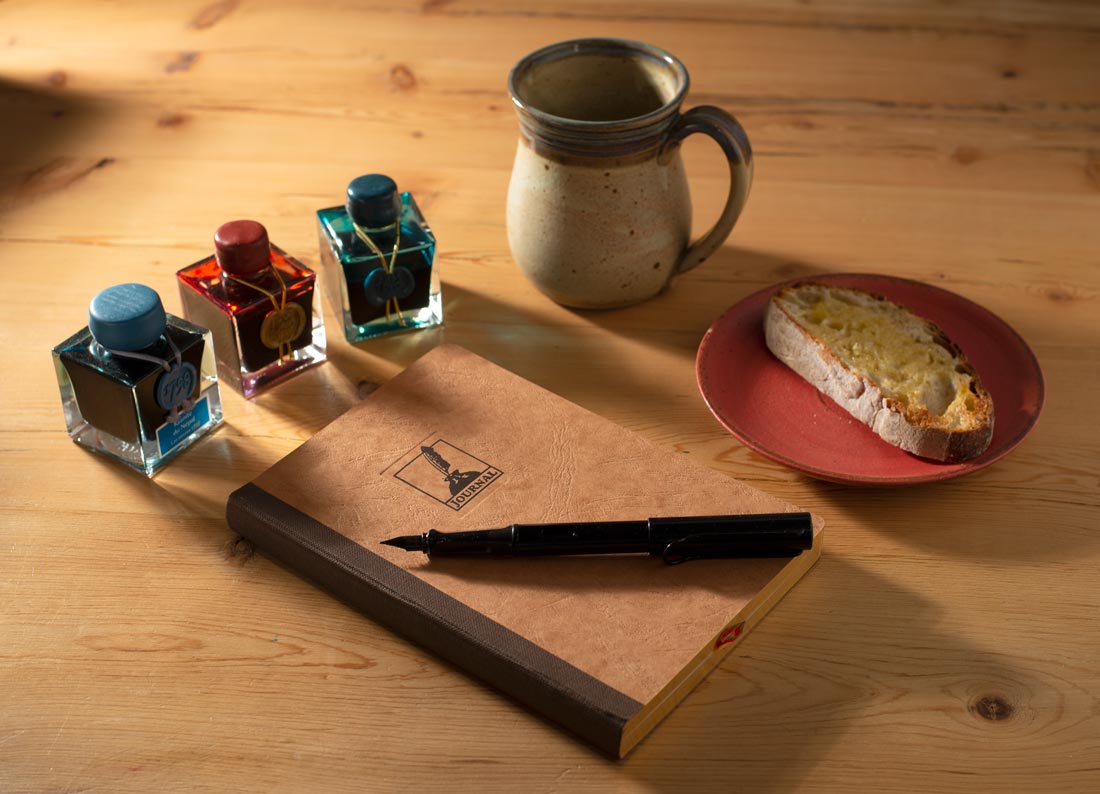
A journal is a place to relax and take a break.
A journal is a great part of your health team, working in tandem with relaxing and meditating daily, eating a healthy balanced diet, exercising regularly, getting enough sleep.
Check out these related items
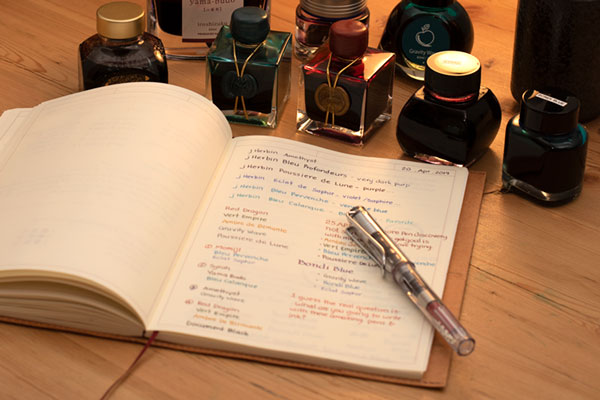
Hand Typing
Simple, legible, careful handwriting on beautiful paper seems old-fashioned in a digital era, but an iOS app developer counts it as one of his most useful tools.

Illuminated Manuscripts
Illuminated medieval manuscripts preserved culture and religious beliefs and set a foundation for book design and art styles.
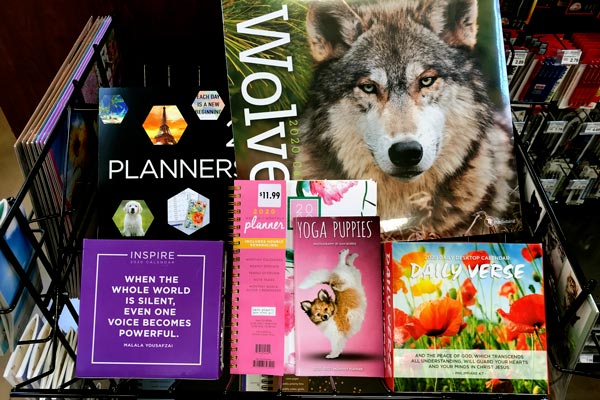
Calendars - The Way We Keep Time
Our calendar system evolved over thousands of years and is continuing to do so with electronic calendars and globalization.
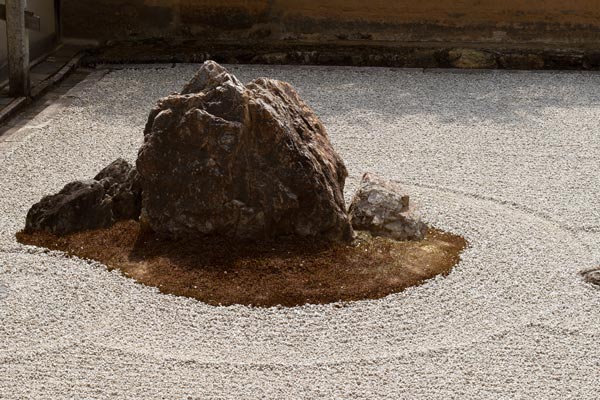
Meditation and Japan’s Rock Garden
Meditation is the theme of the Ryoanji dry rock garden. Find out why the garden inspires meditation and how to meditate.
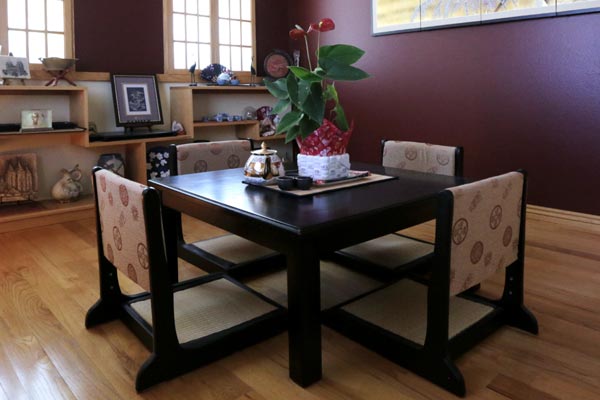
Private Paradises Amid Adversity
Sheltering at home has been accompanied by an outpouring of creativity that can help us cope with adversity and shape our future.
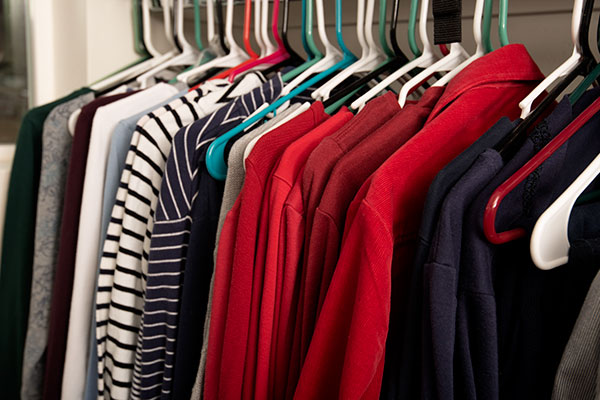
A Minimalist Tries Marie Kondo
A confirmed minimalist finds that Marie Kondo's tidying method helps her to refine an understanding of what brings joy.
